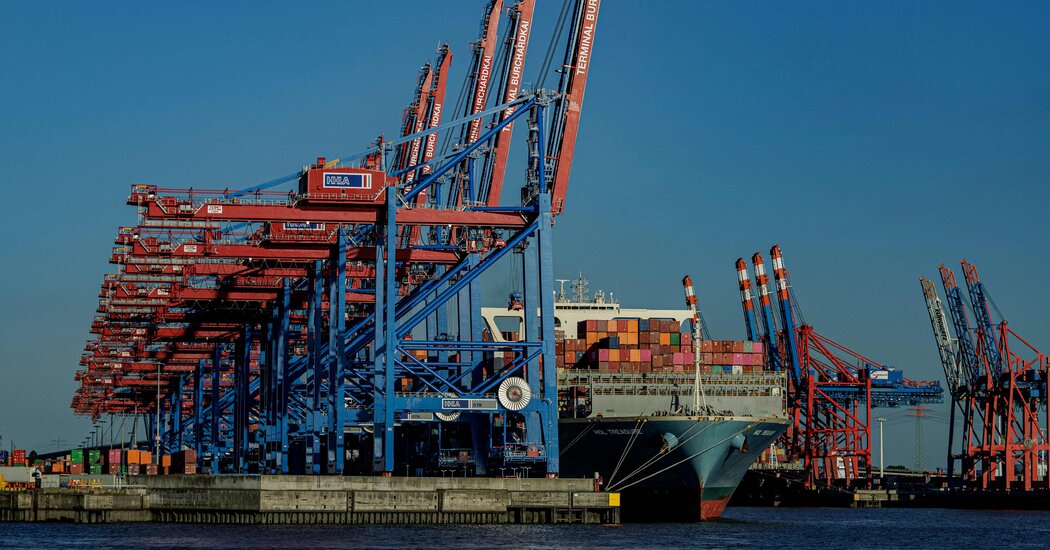BERLIN — For the first time in more than three decades, Germany has recorded a monthly trade deficit, the latest sign that Europe’s largest economy is facing stress over disrupted supply chains and record energy prices linked to Russia’s war in Ukraine.
Exports have been the economic engine in Germany for years, but the sharp rise in energy prices, driven by Russia’s measures to limit the amount of natural gas it supplies to Europe, has pushed up the price of products made in Germany.
Exports fell 0.5 percent in May from April, while imports rose 2.7 percent, leaving a gap of $1 billion or about $1 billion, according to figures released Monday by the Federal Bureau of Investigation. Statistics have been released. It was the first time imports had outpaced exports since 1991, the year after the reunification of formerly socialist East Germany with capitalist West Germany.
The sudden turnaround could indicate weakness in parts of the German economy, where one in four jobs depend on exports. Reliance on imported energy — before the war, Russia supplied more than half of the country’s natural gas — has increased cost pressures on German companies.
“The export decline has started,” said Volker Treier, head of foreign trade at the Association of German Chambers of Commerce and Industry. He pointed to the rising cost of German goods being shipped abroad. “Exporters are less and less able to pass on cost increases caused by supply chains to international customers,” he said.
The United States remained the top destination for German goods in May, with sales up more than 5 percent from the previous month to €13.4 billion. In terms of imports, China remained the country that sold the most goods to Germany, worth €18 billion in May, down 1.6 percent from April.
The decline in German goods sold in Russia is one of the reasons for the decline in exports. Russia has been a strong market for German manufacturers for many years, but since the invasion of Ukraine in February, the trend has been downward as companies stop doing business in the country. Compared to a year ago, sales to Russia have fallen by more than 50 percent.
Economists warn that the overall economic situation could worsen if Russia decides to stop its gas supplies completely. That risk has increased recently.
In June, Gazprom, the Russian energy giant, cut the amount of gas supplied to Germany through Nord Stream 1, a critical pipeline, by 60 percent. This month, the pipeline will be completely shut down for about two weeks for scheduled maintenance, raising fears in Germany that the company will shut the taps when the work is done.
The German government has issued emergency plans in the event of a stoppage of all gas supplies.

